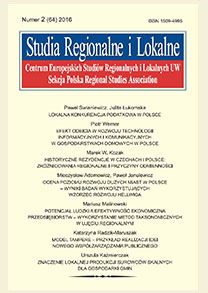Tożsamość europejska a kwestia językowa w Unii Europejskiej
European Identity and the Languages of the EU
Author(s): Roman SzulSubject(s): Social Sciences
Published by: EUROREG - Uniwersytet Warszawski, Regional Studies Association - Sekcja Polska
Keywords: European identity; national identities; European Union; national languages; English as European lingua franca; competition of languages
Summary/Abstract: Europe has no language which would be its symbol of identity, which would emotionally integrate its citizens. According to the official stance of the European Union the linguistic symbol of its identity is its multilingualism, which is confirmed by the fact that it has 23 official languages. The official multilingualism causes some problems connected with translation and interpretation. (For simultaneous translation from all 23 to all other 23 official languages theoretically as many as 506 interpreters are needed). There are techniques reducing this number, but at the expense of time and quality of interpretation). For pragmatic reasons EU institutions increasingly use English alone in their internal activity and in their contacts with member states and other institutions, thus de facto promoting English as the contact language of the EU. English, however, is not a specifically European lingua franca. The role of English as lingua franca in Europe is growing, but as English is the global lingua franca and the spread of English is a sign of globalisation, English cannot at the same time unite Europe and separate it from the rest of the world. Even more so that there is political opposition to the growing role of English in Europe. Therefore the link between language and identity in Europe consists not in possessing a single language (or languages) as its symbol of identity and centre of loyalty and as an instrument of internal communication and external separation. It consists in the fact that the use of English and other contact languages and the mechanism of interpretation and translation in the EU enable circulation of information and ideas which eventually may contribute to the creation (strengthening?) of the sense of European identity.
Journal: Studia Regionalne i Lokalne
- Issue Year: 8/2007
- Issue No: 30
- Page Range: 66-75
- Page Count: 10
- Language: Polish

